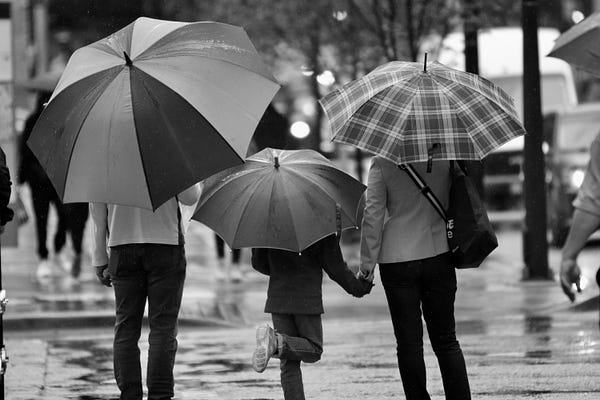Grace Is Greater by Kyle Idleman

My grandmother told me that this book impacted her in such an incredible way that it was one I just definitely had to read. Back in April when I finished reading this book, I needed some new ideas and when she recommended this one I bought it right away. Grace is something that I see undervalued in today’s world and something that I believe I can always get better at.
Near the beginning of the book, the author defined grace and gave us an in-depth explanation of it. I love how all-encompassing grace truly is. True grace is large, it’s bigger than we can imagine. Grace covers all and is needed for each and every one of us, no matter who we are.
Pg. 17, Grace is powerful enough to erase your guilt.
Grace is big enough to cover your shame.
Grace is real enough to heal your relationships.
Grace is strong enough to hold you up when you’re weak.
Grace is sweet enough to cure your bitterness.
Grace is satisfying enough to deal with your disappointment.
Grace is beautiful enough to redeem your brokenness.
Grace explained is necessary, but grace experienced is essential.
This hit me. It’s so true, so relatable, so deep. Jesus asked why we would point out the speck in our neighbor’s eye when we have a plank in our own. We are all imperfect but we know, our should know, our own sins best. Let’s be honest with ourselves, then we can recognize our need for God even more than before.
Pg. 27, “If the biggest sinner you know isn’t you, then you don’t know yourself very well.” Jean Larroux.
The author shares something that Paul wrote after his name was changed from Saul (when he persecuted sinners) to Paul (as he lived faithfully for God). No matter how good I think I am or how faithfully I am following God, I am the worst sinner. Period.
Pg. 28, Here is a trustworthy saying that deserves full acceptance: Christ Jesus came into the world to save sinners — of who I am the worst. — 1 Timothy 1:15
Suddenly I realized what I had missed. The verb am is present tense. And that changed everything. Paul didn’t say, “I was the worst of sinners.” He said, “I am the worst of sinners.”
I think we need to ask. We need to say, Jesus, what is a hard truth I need to know? What is something I do or don’t do that I need to change? And then… we must honestly ACCEPT the answer, whatever it is. Do any of these resonate with you? Are any harder to read for you? Do any give you a pit in your stomach? There’s probably a reason for that. Be honest with yourself and take it before God — only He can make you whole again.
Pg. 39, I wonder what hard truth Jesus would say to you and to me. Maybe he would say:
Your short temper keeps everyone around you on edge, and bitterness toward you is growing in your family.
Your drinking has gotten out of control. It’s affecting a lot more people than just you.
Your porn problem is killing any chance of intimacy you have in your marriage.
Your flirting is leading you down a path that will devastate your family.
You’re allowing your heart to fall for a girl who’s causing you to fall away from me.
You’re choosing your live-in boyfriend over your relationship with me. It’s going to have to be one or the other.
You’re going deeper into debt to feel better about yourself, but the water out of that well isn’t going to satisfy you.
Your self-righteous and legalistic spirit is causing the people at your job to stay away from me.
Your judgmental attitude and your harsh tone are costing you a relationship with your grandkids.

This is where modern parenting is often not as good as I think it could be. With participation trophies and such, people are withheld from the feelings of rejection and failure. But, some periods of rejection, with the right teachers and guidance, are needed.
Pg. 40, Feeling rejected can be one of the worst feelings to experience. When someone experiences rejection early and often, they quickly learn to build up walls to keep people from getting close.
I think that this part of the book was very important to understand and pause after reading. Other people go through and will go through similar things. By keeping things to ourselves and not sharing pain or personal experience, we actually do a disservice to others as a result.
Pg. 45, Some of you think that the worst thing that could happen to you is that your sins will be found out and your secrets will be exposed.
The worst thing that could happen is that you go through your life and nobody knows. No one ever finds out. You just carry the weight of your guilt and shame around with you everywhere.
I think this was a part that the author shared about him punching a door when he was upset at one point. Regardless of that instance, he is still loved and that’s what matters, he recognized he did something he’s not proud of and sought forgiveness and love.
Pg. 62, That hole in the door, which I wanted to hide because it reminded me of something I regretted, started to remind me of how much I am loved. A busted closet door became a trophy of God’s grace. Grace is greater than a hole in my closet door.
God knows. That’s it. No matter what we do in hiding, God knows.
Pg. 75, Hebrews 4:13 teaches us, “Nothing in all creation is hidden from God’s sight. Everything is uncovered and laid bare before the eyes of him to whom we must give account.” Your teacher may not know you plagiarized the paper in college, but God knows. Your husband may not know about your flirting at the gym, but God saw it. You may have deleted the history on your computer, but God knows the websites you visit.
I love this analogy; I agree.
Pg. 96, It’s been said that not forgiving someone is like drinking poison and then waiting for the other person to die, and that may be more true than we think.
God forgives us and when we sin, He should look at all of us as His enemies. Thankfully, He doesn’t.
Pg. 118, God’s unconditional love is so transformative that the grace effect we experience will lead us to forgive even the worst of our worst enemies.

This is the law of attraction in its purest form. Also referred to as the law of echoes, what we take in, we put out.
Pg. 119, “What you inhale is what you exhale.” If you’re intentional to inhale God’s grace and forgiveness, you will also exhale it in your relationships. But if you’re breathing in anger and rage, you’re going to breathe it out in your relationships.
How real is this though, really. If we didn’t complain, we would be much better off. It’s important to simply accept that a situation is the way it is and then to act in response, trusting God throughout the entire process.
Pg. 138, When you strip it down, complaining is a refusal to trust God and acknowledge his grace in your life.
Everything can spread, the good, the bad, or the ugly. It’s up to us to control our environment as best we can and model right living at all times.
Pg. 142, Complainers are going to complain. It doesn’t matter how generous the provision or how thoughtful the gift, they will still find something to complain about.
Like grace, complaining has a way of spreading.
It just takes one whiny family member, one negative neighbor, or a couple of critical church members for the community to become infected.
I think that an eternal perspective is essential to live in the way that God intended for us all to live. I’m working on getting there myself through all situations and I agree, it’s amazing.
Pg. 148, Now I see things in an eternal light: how this life will have a profound effect on my next life, and how anticipation of the next life is having a profound effect on this life I have now. And it’s been truly amazing.
This was a person who could not help themselves and could not do much of anything for themselves and ultimately, they were quite drained by it.
Pg. 161, I pray, “Oh, Lord, my friend will soon give me a bath, get me dressed, sit up in my chair, brush my hair and teeth, and send me out the door. I don’t have the strength to face this routine one more time. I have no resources. I don’t have a smile to take into the day. But you do. May I have yours? God, I need you desperately.”
As Jesus said, He came to save those who needed saving. Does not a doctor help those who are sick rather than those who are healthy? If we are already strong in God, we do not need to discover a lot of God’s strength — we already have it.
Pg. 166, The emptier we are, the more of his grace we can receive. The weaker we are, the more of his strength we can discover.
I think that this is an essential message for all of us. We were all created uniquely and with different strengths and weaknesses. If we never admit our weakness, we will never truly harness the strength and destiny God intended for us.
Pg. 167, But the longer he refused to admit his weakness, the longer he missed out on the strength available to him.

This book was wonderful and challenged me at many times. One of my favorite lessons from it was a reminder that I am the worst sinner I know. Grace is an incredible thing and I love all the powerful and incredible things that grace is able to do for each of us. It makes me think of a quote from Richard Sherman.
“Although no one can go back and make a brand new start, anyone can start from now and make a brand new ending.” — Richard Sherman
I gave this book a 4/5